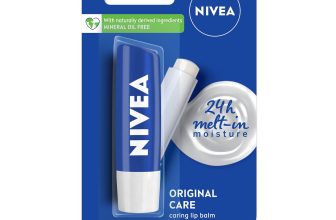
As we step into 2025, it’s the perfect time to reassess our routines and habits. Many of us carry habits that no longer align with our goals, values, or lifestyles. This year presents an excellent opportunity to embrace a healthier, more fulfilling way of living. In this blog, we’ll explore effective strategies to kick bad habits and replace them with routines that serve your well-being and growth. Let’s dive into the journey of self-improvement and habit transformation.
Step 1: Understand Your Habits
The first step to breaking bad habits is understanding them. Habits often stem from specific triggers—a situation, emotion, or cue that prompts you to act in a certain way. Identifying these patterns is essential to breaking unhealthy cycles.

Identify Your Triggers
Start by observing your daily routines. What circumstances lead you to indulge in a habit you want to break? For example:
- Stress might lead to overeating or smoking.
- Boredom might push you to scroll endlessly on social media.
- Fatigue could result in skipping workouts or procrastinating on tasks.
Journaling can be a powerful tool for identifying triggers. Write down when and why you engage in a habit, and you may uncover patterns you weren’t aware of.
Analyze the Habit Loop
The habit loop consists of three components: the trigger, the behavior, and the reward. By dissecting this loop, you can understand what keeps a habit alive. For instance:
- Trigger: Feeling anxious before a meeting.
- Behavior: Drinking a sugary soda for a quick mood boost.
- Reward: Temporary relaxation or pleasure.
Understanding this loop is the first step toward breaking it.
Step 2: Explore Evidence-Based Solutions
Once you’ve analyzed your habits, it’s time to implement evidence-based strategies to change them. Several techniques can help you successfully break and replace habits.

Mindfulness and Meditation
Mindfulness practices are excellent for gaining control over automatic behaviors. Meditation can help you stay present and resist the urge to act on negative habits. Studies have shown that mindfulness reduces stress and increases self-awareness, making it easier to identify triggers and pause before acting on them.
To get started, dedicate just 5-10 minutes daily to meditation. Apps like Headspace or Calm can guide you through the process. Over time, mindfulness becomes a natural part of your day, helping you make more intentional choices.
Cognitive Behavioral Therapy (CBT)
Cognitive Behavioral Therapy is a proven approach to habit change. It focuses on identifying and altering negative thought patterns that drive undesirable behaviors. For example, if procrastination stems from fear of failure, CBT helps reframe this mindset, enabling you to take proactive steps.
Consider seeking professional guidance or using CBT-based self-help resources to tackle deeply ingrained habits effectively.
Hypnosis for Habit Change
Hypnosis is another evidence-based solution for addressing habits like smoking, overeating, or nail-biting. It works by reprogramming your subconscious mind to dissociate the habit from its perceived reward. Hypnotherapy sessions, whether with a professional or via online programs, can be a powerful tool for transformation.
Step 3: Replace and Reinforce
Breaking a habit isn’t just about eliminating it; it’s about replacing it with a positive alternative. This ensures you’re not left with a void that the bad habit can easily fill again.

Replace Bad Habits with Healthier Alternatives
When you remove a habit, you need to fill the gap with something that provides a similar reward. For instance:
- Replace smoking with chewing sugar-free gum or deep breathing exercises.
- Swap binge-watching TV with a relaxing hobby like reading or drawing.
- Substitute junk food with nutritious snacks like nuts, fruits, or yogurt.
The key is to choose alternatives that genuinely appeal to you and align with your goals.
Use Positive Reinforcement
Reinforce your new habits by rewarding yourself for sticking to them. For example:
- Treat yourself to a small indulgence after completing a week of workouts.
- Celebrate milestones, such as a month without smoking, with a meaningful reward like a spa day or new gadget.
Positive reinforcement strengthens your commitment and makes habit change feel less like a chore and more like a rewarding journey.
Practical Tips for Habit Transformation
Start Small
Attempting to overhaul your life overnight can be overwhelming. Instead, focus on one habit at a time. For instance, if your goal is to adopt a healthier lifestyle, start by drinking more water daily before tackling exercise or diet changes.
Set SMART Goals
Your goals should be Specific, Measurable, Achievable, Relevant, and Time-bound. For example:
- Instead of saying, “I want to exercise more,” set a goal like, “I will walk for 30 minutes, five days a week, for the next month.”
SMART goals provide clarity and direction, increasing your chances of success.
Find an Accountability Partner
Having someone to support and check in on your progress can be incredibly motivating. Share your goals with a trusted friend, family member, or mentor who will encourage you and celebrate your achievements.
Use Technology to Your Advantage
Apps and devices can help you track progress and stay motivated. Some popular options include:
- Habit-tracking apps like Habitica or Streaks.
- Fitness trackers to monitor physical activity.
- Journaling apps to log your thoughts and progress.
Why 2025 Is the Perfect Time for a Habit Reset
Every new year brings an opportunity for change, but 2025 feels particularly significant. The world continues to evolve, and personal growth has become more important than ever. With the wealth of tools, resources, and scientific insights available, there’s no better time to take control of your habits and create a life you love.
By identifying your triggers, using evidence-based solutions, and replacing bad habits with healthier ones, you can achieve lasting transformation. Remember, the journey of self-improvement is ongoing, and every small step counts.
So, what habit will you reset in 2025? Let us know in the comments below, and here’s to a year of positive change and growth!








[…] 2025 Habit Reset: Strategies to Kick Habits That No Longer Serve You […]